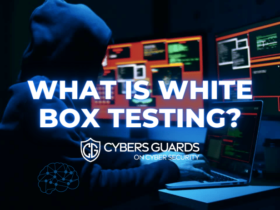We’ve all received suspicious emails before, but none quite as alarming as a ransomware email. This type of cyber-attack can result in devastating consequences if not handled properly. In this blog post, we’ll discuss what you need to know about ransomware emails – how to recognize them, what to do if you receive one and most importantly, how to prevent becoming a victim. Keep reading to learn more!
What is ransomware email?
Ransomware emails are a type of cyber-attack that involves encrypting your files and demanding payment (usually in the form of cryptocurrency) to release them. These emails usually contain a message that threatens to delete or encrypt your data if you don’t pay up within a certain timeframe.
Ransomware attacks can come from anywhere, including emails from seemingly legitimate sources such as banks, shipping companies or even government agencies. Once you click on an attachment or link in the email, malicious code is installed on your device which then begins to encrypt all your files.
The attackers behind these ransomware campaigns often prey on people’s fear and panic by creating fake messages designed to look like official notices. They may also use social engineering tactics such as urgency or time-sensitive deadlines to pressure victims into paying the ransom quickly.
It’s important to note that paying the ransom doesn’t always guarantee that you will get access back to your files. In fact, it may encourage more attacks since attackers know they can make money off their victims. That’s why prevention and awareness are key when it comes to dealing with this type of threat.
How to recognize ransomware email?
Ransomware email attacks have become increasingly common in recent years, and it’s important to know how to recognize them. Here are some tips on what to look out for:
Firstly, be wary of any emails from unknown senders or suspicious-looking addresses. These may contain ransomware attachments or links to infected websites.
Secondly, pay attention to the content of the email itself. Ransomware emails often use urgent language and threaten dire consequences if you don’t comply with their demands. They may claim you’ve committed a crime, owe money or that your personal information has been compromised.
Thirdly, take note of any unusual requests in the email such as asking you to download an attachment or click on a link immediately without providing much context.
Always trust your instincts – if something feels off about an email even if it appears legitimate at first glance, double-check with the supposed sender through another communication channel before taking any action.
By staying vigilant and knowing what red flags to watch out for, you can protect yourself from falling victim to ransomware attacks via email.
What to do if you receive ransomware email?
If you ever receive a ransomware email, it’s essential to act quickly and take the necessary steps to protect your computer and data. Here are some things you can do:
1. Don’t panic: Ransomware emails often contain threats that your files or data will be deleted unless you pay a ransom. However, panicking will not help solve the issue.
2. Disconnect from the internet: If possible, disconnect your computer from any networks, including Wi-Fi or Ethernet cables immediately.
3. Avoid clicking on links or downloading attachments: The email may contain malicious links or attachments that could infect your computer with malware.
4. Report the incident: Contact your IT department if you have one, and report the incident to them immediately.
5. Run an antivirus scan: Use an antivirus software to run a full system scan of your device for any signs of infection.
6. Do not pay the ransom: Most security experts recommend against paying ransoms as it encourages cybercriminals’ behavior while there is no guarantee that they’ll release control over encrypted files even after payment has been made.
By following these steps when receiving a ransomware email, you can reduce potential damage and protect yourself from future attacks in case such incidents happen again in the future
How to prevent getting ransomware email?
Preventing ransomware email attacks is the best way to protect yourself and your business from cybercriminals. Here are some steps you can take to prevent getting ransomware emails:
1. Keep all software up-to-date: Make sure that all operating systems, applications, and security solutions are updated regularly.
2. Use strong passwords: Avoid simple passwords that hackers can easily guess. Use a combination of letters, numbers, and special characters for maximum security.
3. Be cautious when opening attachments or clicking links: Always exercise caution when opening email attachments or clicking on links in emails from unknown senders.
4. Install anti-virus software: Installing anti-virus software can help detect and block any malicious files before they infect your system.
5. Backup important data regularly: Backing up essential data on a regular basis ensures that even if you fall victim to an attack, you won’t lose valuable information or be forced to pay the ransom demand.
By following these simple steps, you can significantly reduce the risk of becoming a victim of ransomware attacks through email scams!
Conclusion
To sum up, ransomware emails are a serious threat to both individuals and businesses. These malicious emails can cause significant damage by encrypting important files and demanding payment in exchange for decryption. However, there are ways to recognize and prevent these threats.
By being vigilant when it comes to suspicious emails, keeping your software up-to-date, and regularly backing up your data, you can greatly reduce the risk of falling victim to ransomware attacks. If you do receive a ransomware email or suspect that your system has been compromised, it’s essential that you act quickly and seek professional help if necessary.
Remember: prevention is always better than cure when it comes to cybersecurity. By taking the necessary steps to protect yourself from ransomware attacks, you can safeguard your personal information, finances, and peace of mind. Stay safe out there!











FIND US ON SOCIALS